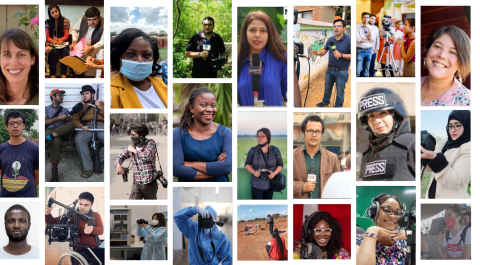
ICFJ’s global network is made up of tens of thousands of journalists who are making a difference through their work. Many have participated directly in our programs or received ICFJ awards, while others have worked with our Knight Fellows and partner networks.
ICFJ offers the journalists in our growing network opportunities to deepen their skills, collaborate with colleagues across borders, build more sustainable news outlets and more. In response to COVID-19, for example, ICFJ launched the Global Health Crisis Reporting Forum in five languages. The initiative has since evolved into the Pamela Howard Forum on Global Crisis Reporting. Today it is made up of nearly 13,000 members from all over the world. We build, develop and connect the global journalism community through initiatives like this.




